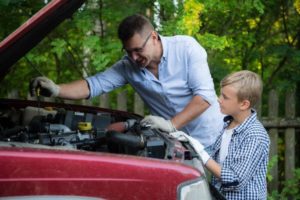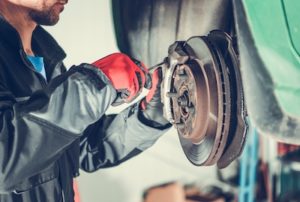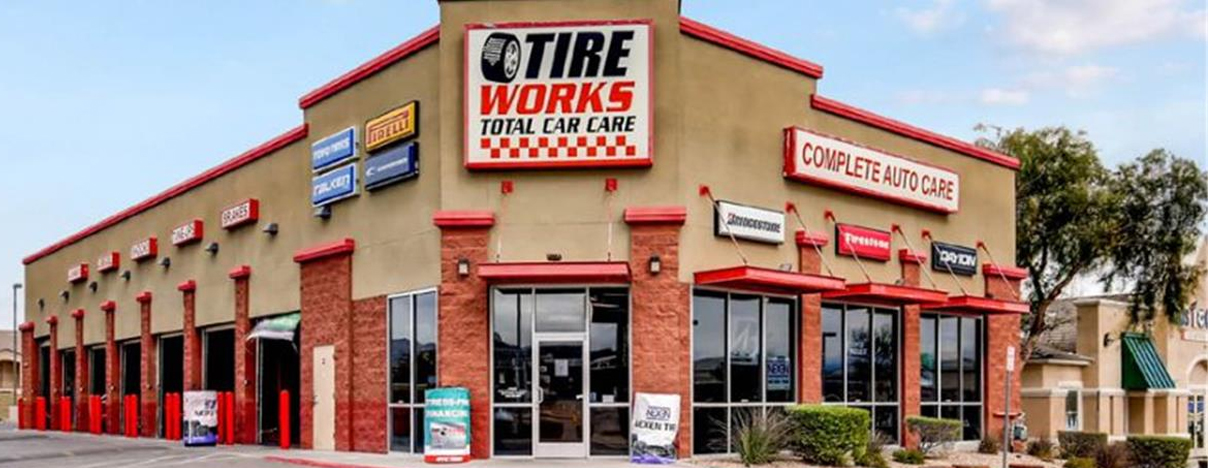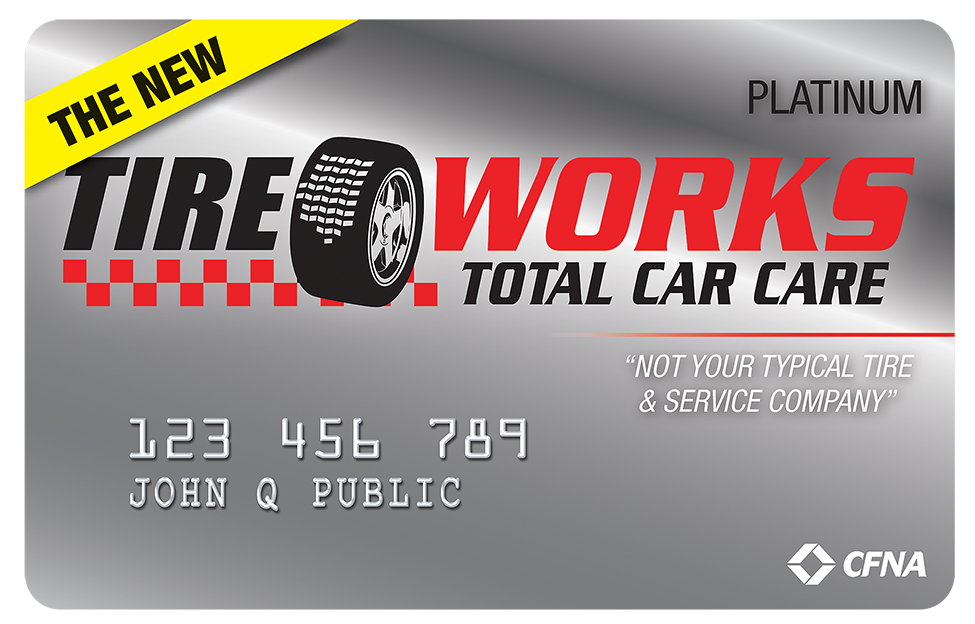Auto Repair Guide to Car Care In Arizona

As a driver, you continually count on your car, truck, SUV, or van every single day. It is, without a doubt, an integral part of your day-to-day life. To be able to meet the demand of this role, your vehicle relies on a variety of components and systems working together to get you from point A to point B.
But, with this many parts involved, proper care and service will always be a natural part of vehicle ownership. Unfortunately, not everything on your vehicle will last forever. During your vehicle’s lifespan, you will occasionally encounter a scenario that puts you in need of a professional auto repair shop. Of course, keeping up with routine preventative maintenance will help reduce the frequency of this happening and extend the lifespan of your vehicle’s parts and systems.
As repair needs come up, having a basic knowledge of auto repair and optimal car care can help you confidently address them. Thus, ensuring that you have a reliable vehicle for as long as possible and preventing you from having to rely on your car mechanic more than you need to.
In this in-depth guide, we’ve broken down everything you need to know about car care and auto repair in Arizona, including the most common repair services and how to tell when your vehicle may need repair service, the importance of preventative maintenance, and how to select a good auto repair shop.
The Most Common Auto Repair Needs
Daily driving of your vehicle naturally puts unavoidable wear and tear on the main systems. These systems, including the engine and the electrical, transmission, fuel, brake, A/C, and suspension systems, keep it running and help keep you comfortable when out on the road. So, your vehicle’s auto repair needs that you may encounter will usually involve components within these main systems.
Some of the most common repair services that a car mechanic frequently takes care of include:
- Brake repair
- Engine/transmission cooling system repair
- Battery replacement or service
- Vehicle tune-up (including spark plug replacement)
- A/C system repair
- Suspension repair
- Transmission repair
- Belt and hose replacement
When you have a professional Arizona auto repair shop you can count on, like Tire Works, the experienced mechanics will be able to properly address any of the above repair and service needs that your vehicle may have.
Warning Signs That Indicate You May Need Auto Repair Service
In many cases, when any of the above auto repairs are needed, the vehicle will feel or behave differently. There are some warning signs to be aware of. And knowing exactly what to look out for will help you get issues addressed quickly. Then, your mechanic can take care of it before it becomes a larger and more expensive problem.
Your senses are actually one of the most helpful ways to quickly pick up on some common vehicle problems:
Feeling
Usually, one of the first things you’ll notice is if your vehicle feels “different” upon startup or when driving. A possible need for auto repair service may feel like:
- Difficulty starting the vehicle, irregular idling, or engine stalling: A problem within the engine’s starting system, charging system, or fuel system is often the culprit for these issues.
- Diminished acceleration: This can be due to a clogged air filter, dirty fuel filter, overly worn spark plugs, or a faulty O2 sensor.
- Rougher shifting or failure to shift properly: If this happens when accelerating, it usually indicates a failing transmission system component.
- Brake pedal feels strange: A softer-than-normal, “spongy”-feeling brake pedal is usually an indication of reduced braking power caused by a brake system problem.
- Vehicle is pulling to one side: This can be caused by an alignment issue, underinflated tire, brake issue, or an issue within the steering system.
- Unusual vibration: An imbalanced tire or worn suspension/steering components can cause vibrations in your steering wheel and/or seat.
Sounds
If you hear a strange sound coming from your vehicle, it could be one of the common indicators of a problem that should be inspected ASAP. These sounds include:
- High-pitched shriek when braking: This is usually caused by the brake wear indicators that alert you when your vehicle is overdue for brake service.
- Sharp clicking sound, which increases as you accelerate: Often caused by low engine oil, a stuck valve lifter, or simply a loose or bent fan blade.
- Sharp, loud squealing when the vehicle is running: Overly worn power steering components, a worn A/C belt, or a faulty fan is usually the culprit for this sound.
- Unusual, low, and loud rumble: Usually due to a bad exhaust pipe, defective muffler, or a faulty universal joint.
- Loud, occasional clunking: Could be caused by a loose suspension component or exhaust pipe.
Unusual Sights
Of course, if the “Check Engine” light is lit up on the dashboard, this is a clear indication of an issue. But, you should also be regularly looking under your vehicle for any leaking fluids.
Depending on the fluid color, it can point to different possible issues:
- Greasy dark brown or black fluid: This is leaking engine oil usually from a bad gasket or seal.
- Bright yellowish-green, light pastel blue, or fluorescent orange watery fluid: This is leaking coolant/antifreeze, which can be coming from a bad hose, leaking radiator, or faulty water pump.
- Oily red fluid: This is usually leaking transmission or power steering fluid coming from within either of those systems.
Smells
Strange, distinct smells can also indicate several common issues, including:
- The bitter, burnt smell coming from the engine: This usually indicates an engine oil leak or that an oil change is long overdue.
- A strong, burnt chemical smell: Usually due to overheated brakes or clutch. If you see light smoke coming from one of your wheels, then the brake is locked-up, and the vehicle needs to be towed in for repair.
- A strong, “burnt toast” smell: This can indicate an electrical short and/or burning insulation. If this is happening, do not continue to drive.
- A sweet, maple syrup-like smell: Usually due to leaking coolant. If the temperature gauge goes up and the engine starts overheating, stop driving immediately.
- A constant “rotten eggs” smell: A problem within the emission control system, like the catalytic converter, can cause this distinct smell.
No one knows better than you how your vehicle normally drives. So, if something seems different, bring your vehicle to your closest Tire Works Arizona location today for an inspection.

Helpful Tips to Keep In Mind About Auto Repair
There’s no doubt about it, an auto repair is usually a disruption to your normal routine. It can bring on stress and anxiety. But, there are a few things to keep in mind that can help:
- Be careful with self-serve kiosks that read error codes from your vehicle’s computer. A qualified car mechanic can read any codes present and accurately pinpoint exactly what is needed much better than a kiosk can. The last thing you want to do is spend money and time on parts only to find out it wasn’t actually what was needed after all.
- Before you replace your battery, get professional input to ensure you get the right one for your driving needs and our Northwest Arizona climate. If you get the wrong type of battery, it can wear out much faster or expensive electrical damage can occur.
- Frequently towing heavy loads puts different demands on your vehicle. In this case, ask your mechanic which type of oil would offer the best performance.
- Keep a tire gauge in your vehicle. If needed, ask your auto mechanic to show you how to use it.
- The more details you can communicate to your car mechanic about any vehicle problems that you are experiencing, the more thoroughly and accurately they can assess the situation. So, write down exactly, in specific detail, what you have been experiencing. This includes any odd sounds, smells, vibrations (and where these things are coming from), changes in the vehicle’s operation/performance, any illuminated warning lights, etc.
- Pay attention to the order of recommended services on the list that the auto repair shop gives you. In most cases, it will be in priority order.
- Don’t be afraid to ask as many questions as you need to until you understand! Your service professional at the auto repair shop doesn’t know how familiar you are with car terms or what you already know about auto repair. They would rather answer any questions you have than deal with a misunderstanding after the fact.
- Always keep any auto repair paperwork together in an easy-to-find place, just in case something comes up later.
- Many people don’t realize that a clean/neat vehicle is easier to work on. Mechanics can access some parts of your vehicle more easily from inside the cabin. So, clean up any clutter from your floorboard and seats before leaving the vehicle at the auto repair shop.
- Just like the inside, keeping the exterior of your vehicle clean also matters. Besides keeping it nicer looking, routinely washing your vehicle can help keep it protected as well. Everyday elements like salt air, tree sap, bird droppings, mud, road salt, etc., can all cause significant damage when left too long. This includes damage to the paint, undercarriage, brake lines, and electrical wires.
- Review the coverages, limits, and deductibles of your vehicle’s insurance policy periodically. If anything needs to be changed, it’s best to do that before additional coverage is needed for a large auto repair due to an accident.
The Importance of Preventative Maintenance
Keeping up with your vehicle manufacturer’s recommended preventative maintenance routine is extremely beneficial for its reliability and safety. Following the suggested service routine is the easiest way to help prevent the frequent need for many of the repairs we covered above. This includes routine oil changes, tire maintenance, fluid checks, brake inspections, and service, etc.
It may seem like a bigger cost upfront in both time and money, but doing so will prevent much bigger and more expensive problems in the future. Also, in many cases, not following the manufacturer’s guidelines for maintenance can actually void your vehicle’s warranty.
Plus, when it comes time to sell or trade-in your vehicle, proper routine maintenance and keeping in-depth service records can boost its value.
What Your Vehicle’s Maintenance Routine Should Include
It’s really not too difficult to properly take care of your vehicle once you know the things that can keep it running its best for longer. Your preventative maintenance checklist should include the following:
- Engine oil and oil filter changes
- Periodic tire rotation
- Maintaining proper tire air pressure
- Periodic multi-point vehicle inspections
- Wheel alignment and balancing service (as needed)
- Brake pad replacement (as needed)
- Fluid top-off and replacement, including the brake, power steering, coolant, and transmission fluids (as needed)
- Spark plug replacement (as needed)
- Battery replacement (as needed)
- Belts and hoses inspections and replacement (as needed)
- Tune-up service
How Often is Preventative Maintenance Needed?
How frequently vehicles need inspection and maintenance service varies from one to another. The closest you will find to the exact answer for your vehicle lies in your owner's manual. Here you’ll find the exact maintenance service schedule recommended by the manufacturer for all of your vehicle’s critical systems.
There are some general recommendations that can give you an idea of what to expect, though. For example, the rule of thumb for oil change frequency is roughly every 5,000 miles, depending on the type of oil. And you should also have your tires rotated every 5,000 miles as well.
In addition to these things, manufacturers usually also recommend inspection and service at the 30,000-mile, 60,000-mile, and 90,000-mile marks. Again, your vehicle’s owner’s manual will give you the exact specifications for these and other service intervals in between.

How to Select a Good Auto Repair Shop/Car Mechanic in Arizona
Finding a good, reliable auto repair shop in Arizona doesn’t have to be difficult. To do this, there are some important tips and priorities to keep in mind to help you properly identify a shop and car mechanic that can best meet your needs.
Here are a few things to consider to help you decide:
- Do they offer a full range of auto repair and maintenance services? Right now, your vehicle may not need much more than a routine oil change. But, you want to make sure that you’re covered in the future. Look for an auto repair shop that handles anything from preventative maintenance to in-depth engine repair service.
- Do they have the right credentials? Are they licensed, and are the mechanics experienced and certified? For high-quality service that you can trust, you should only use a licensed auto repair shop that has certified mechanics. Any genuinely trustworthy shop won’t have anything to hide regarding the qualifications of its mechanics. The main certification to look for is from the National Institute for Automotive Service Excellence (ASE)—the “gold standard” for the auto repair industry. ASE-certified mechanics are qualified to service every system in a vehicle, including all mechanical and electrical components.
- Do they have good reviews? One of the best ways to select a good auto repair shop is to take a look through online reviews. Read through the experiences of others, both good and bad, who have used the shop.
- Do they have multiple locations? Not only does having multiple locations point to the success of a company, but it can also add to the convenience. You never know when and where your vehicle may break down. So, multiple locations mean that there’s a higher chance that there’s a location close to you.
- Do your friends or loved ones recommend them? Chances are, at least one of your local friends and family has a car mechanic that they use routinely. Ask them for their input for a trusted recommendation. They may also be able to tell you who to avoid as well.
The Local Experts You Can Count on When You Need Auto Repair
Keeping up with the suggested preventative maintenance routine will help keep your vehicle running better for longer and reduce the chance of problems arising. But, if your vehicle does start performing unusually, the most important thing to remember is to not just ignore it. Bringing your vehicle to your closest auto repair shop as soon as possible can prevent a small issue from turning into an expensive problem quickly.
Build a working relationship with your car mechanic. In doing so, they’ll get to know your vehicle and have records of all of the maintenance and repair work that is done. Not only is this valuable information to have on hand for any future repairs that may be needed, but it also builds trust between you and the auto repair shop.
When you need an Arizona auto repair shop you can count on, look no further than the ASE-certified experts here at Tire Works for all of your vehicle’s service needs. We provide professional vehicle maintenance, dependable auto repair, and a top-notch customer service experience, all at competitive prices.
Our Arizona Auto Shop Locations Include:
- Kingman, AZ Auto Repair Shop
- Golden Valley, AZ Auto Repair Shop
- Fort Mohave, AZ Auto Repair Shop
- Bullhead City, AZ Auto Repair Shop
Contact your closest Tire Works Arizona auto shop location to schedule your service today!











